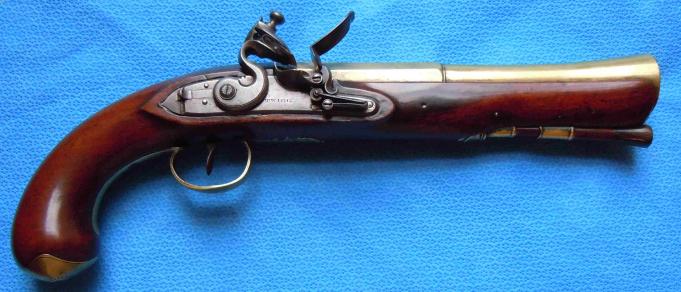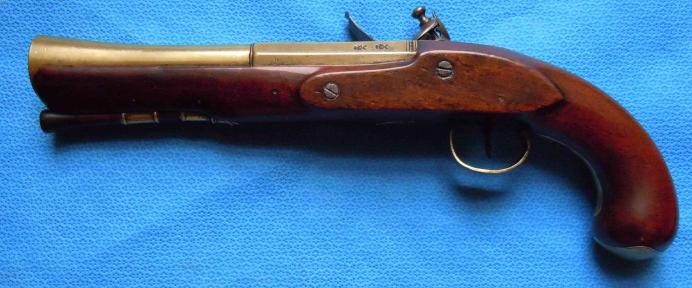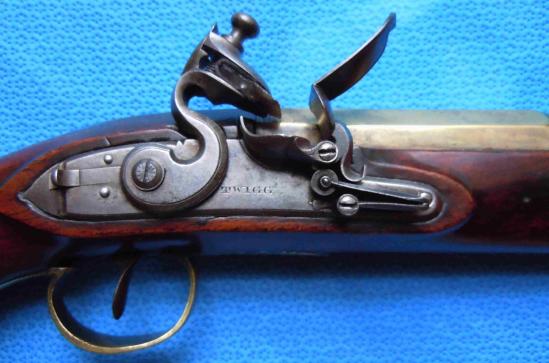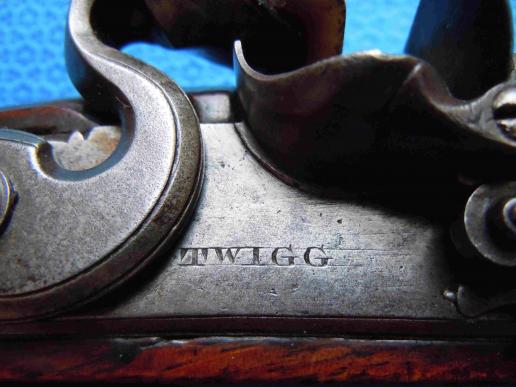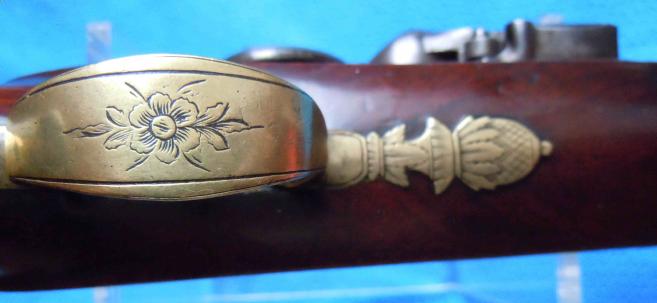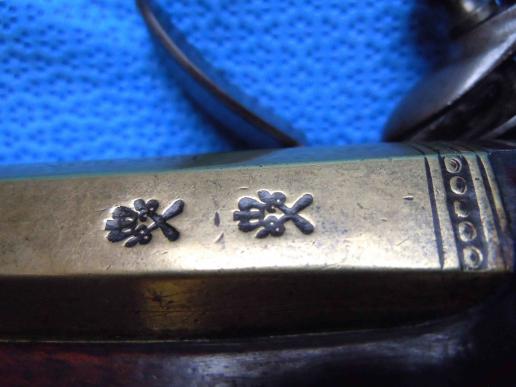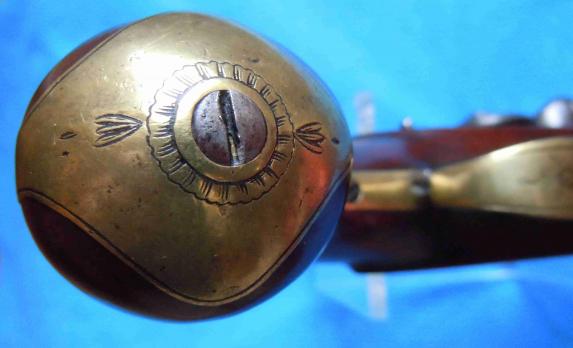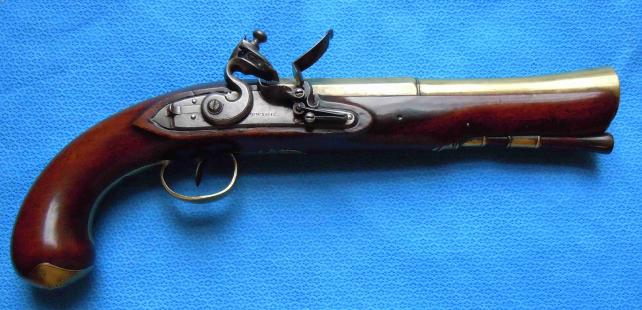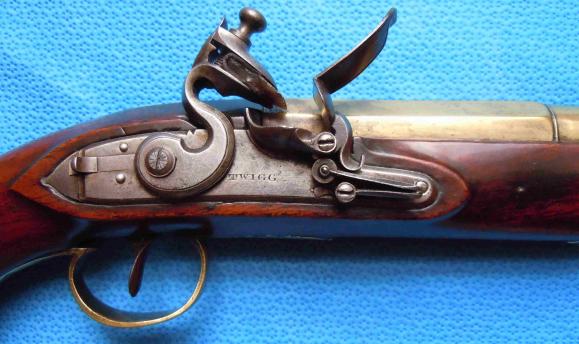Rare and outstanding Twigg Brass Barrelled Blunderbuss Pistol circa 1785.
Twigg is a name to conjure with and this is about as interesting an example of Twigg's exquisite work that could be found and would enhance any collection. The pistol not only exudes quality, excellent preservation but has the advantage of rarity.
This is a brass barrelled blunderbuss coaching pistol with a 8" swamped barrel to 3 bore that unusually has no barrel rings or a bayonet. The barrel is stamped with private London proof marks as would be expected. The walnut stock is in outstanding condition and the trigger guard exhibits a pineapple finial. This Twigg flintlock has the first form of the Twigg signature used from 1760 to 1770 (Great British Gunmakers 1740 - 1790 The History of John Twigg and the Packington Guns W. Keith Neal & D.H.L. Back plates 183 - 184). However it has a pineapple finial to the trigger guard and a roller on the frizzen spring which suggests a date of 1784 onwards at a time he was using his third signature form (ibid page 132). John Fox Twigg died 23 March 1790 (ibid page 62) and his son took over the business. Either John Fox Twigg reverted to the old form of his signature for his last, non-dueling pistols, or this signature indicates his son's work. It is possible to make a direct comparison to the lock with extant examples such as the fine example held in the Victoria Museum collection in Australia. From the evidence it can be surmised that the pistol was manufactured between 1785 and 1790.
John Fox Twigg was born at Grantham, Linconshire, in 1732 and is listed by Heer (1978) as being apprenticed to the Irish Gunmakers, Edward Newton (active 1718-1764), though no dates for the apprenticeship are offered.
By 1755, Blackmore (1986) lists Twigg working as a Gunmakers from Angel Ct., Charing Cross until 1760 when he moved to 132 Strand, opposite Catherine St., and continued at this address until 1776.
He moved again in 1776, this time to Piccadilly where he remained until 1790. During these 14 years he opened several warehouses; at little Somerset St., in 1771; 30 Cornhill, 1777 and Tower Hill in 1779. His only son, John, was apprenticed in 1786 to Henry Nock, and subsequently inherited his father's business.
In 1788 Twigg formed a partnership with his nephew, John Bass (b.1761 - d.1794) although this was cut short by Twigg's death. As Blackmore notes, however, the trade directories are misleading in this respect, and show the business continuing at Piccadilly until 1795.
This is a handsome looking investment quality pistol by a prestigious well known maker manufactured at the height of their powers.
Code: 50472

